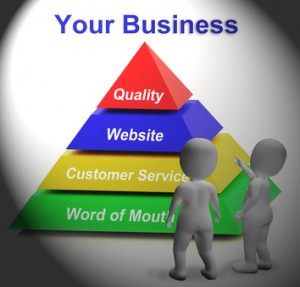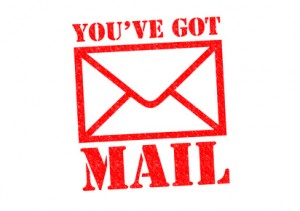Boost The Effectiveness of Your Legal Marketing by Leading With “What’s In It For Me”
 A common complaint I hear from attorneys is that they are diligently DOING marketing, or what they believe to be great marketing, and they are just not seeing any significant results or ROI from their efforts.
A common complaint I hear from attorneys is that they are diligently DOING marketing, or what they believe to be great marketing, and they are just not seeing any significant results or ROI from their efforts.
As someone who managed law firms for 20 + years, I understand how frustrating this can be. When you have employees to pay, expenses to take care of, and oh, let’s not forget about your own paycheck too, having the phone fail to ring…and worse, throwing a ton of money at something that is not bringing in any results can really hurt and sting.
I want to keep this article realistic and admit upfront that not every campaign you run will work, and you should be prepared for a few misses here and there. For example, what is working for other firms may not work for you because your demographic is different, it’s not a practice area you feel totally comfortable with and so on.
But when you are CONSTANTLY missing the mark on your marketing goals, that is a huge problem. And I’d venture to say that 99% of the time when I review marketing that isn’t working, it’s not the medium that’s wrong, it’s the MESSAGE. The attorneys are simply failing to lead with a powerful principle known as “What’s In It For Me” in their letters to referral sources, print ad campaigns, networking attempts and so forth.
In order to be great at crafting an effective marketing message, you have to learn how to uncover and tap into the unspoken desires of your target market so that you are able to hit their deepest pain points and offer solutions to what matters most TO THEM.
Think about the marketing that YOU respond to. Think about the invitations to host collaborative events that YOU jump at the chance to participate in. You usually don’t have to wade through a ton of B.S. before you find out how YOU can benefit. Go even deeper and think about what exactly it is that is driving you in each situation. Maybe it’s:
- An opportunity to get in front of an untapped audience of potential clients
- Free media exposure
- A chance to network with really great potential referral sources
- You have the chance to get something at a great discount or for free
- You can take advantage of education opportunities that will make you more money down the road
- … etc.
Marketing that compels and incites action will not only hint around at these selfish desires, but will position the company or person crafting the advertising as the answer to the problems you face.
Let me give you a recent example. A client showed me a letter that she crafted to go out to senior organizations to have her come in and speak about Veterans Benefits Planning. In the letter, she simply introduced herself, came out strongly with some information on her expertise (she IS a noted leader in her field, but that message just got lost in the mix), and included a few bullet points on what she could teach on.
The message was ignored by everyone she sent it to. Why? Because it was all about HER and failed to explain what was in it for THE FACILITY DIRECTORS to take on the time and expense of hosting a workshop and having her come in to speak.
When I got her on the phone, I started working with her to drill down deeper on WHY having her in to speak would be beneficial for THEM. Turns out, many of the seniors in her area are unable to move into facilities because they don’t yet qualify for Medicaid, or all of the Medicaid beds are full and the seniors just don’t have enough money to private pay. They are simply hanging out on waitlists until their financial situation changes.
The pain point for the facility then would be getting these people OFF the waitlist so that they can fill their non-Medicaid beds and bring in more income. They are, after all, a business too.
We redrafted the letter to lead with this key point… that by teaching on VA Benefits Planning, our attorney would be able to help those who are on the waitlist, who also happen to be wartime veterans, begin to collect additional income through the VA so that they have a better chance of private paying to receive the care they need. Win for the senior and WIN for the facility!
So, was the letter effective? You bet. She had calls from directors right away to meet for lunch and talk further about her proposal.
I hope you can see the difference in how these two letters were framed. One led with why she was so special and her expertise while the other lead with why having her in would make good financial sense for the FACILITY and their seniors on the waitlist.
As you create your marketing, be sure to go back and look it over with the “What’s In It For Me” principle in mind. Are you addressing your target audience’s needs, wants and desires… or are you simply concerned about your own?
A few simple shifts in this area can uplevel your marketing dramatically. Give it a try and track your results. Please also feel free to send me some of your materials if you are in need of an honest critique.
Would you like to talk about how we can help you save time on your marketing and help you turn ideas into action? Simply schedule a time on my calendar for a no-strings virtual cup of coffee.













